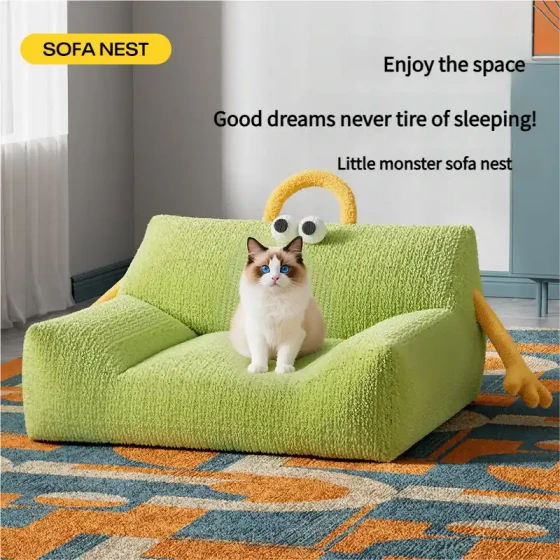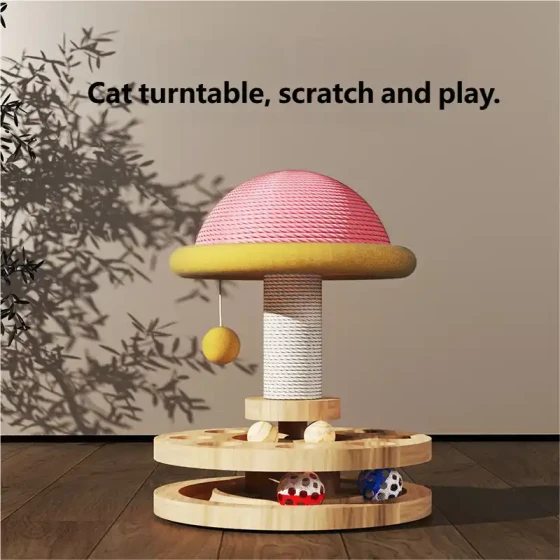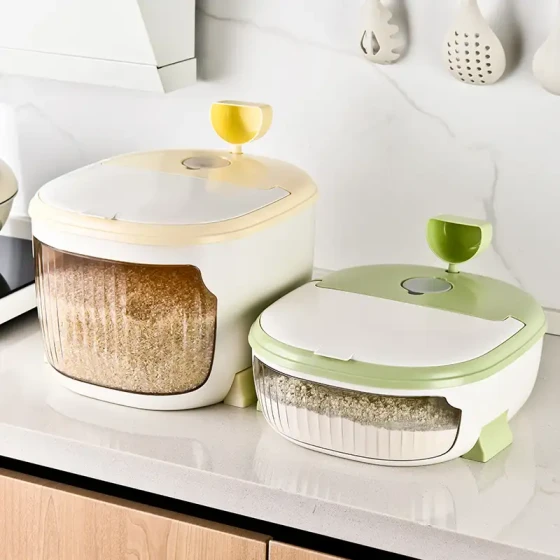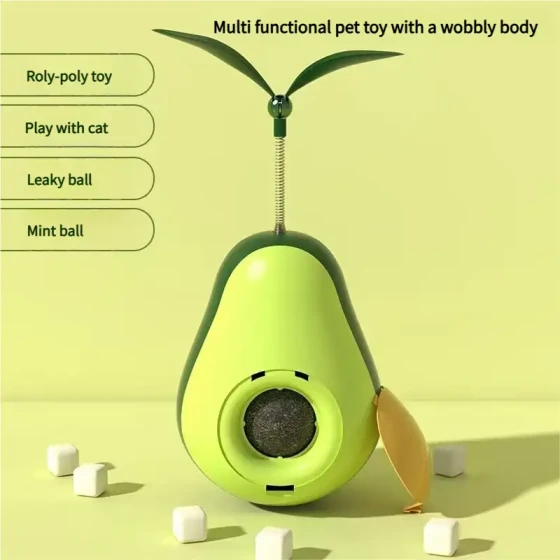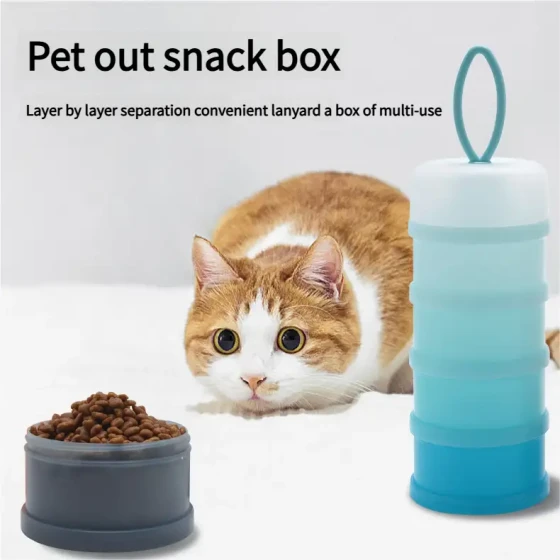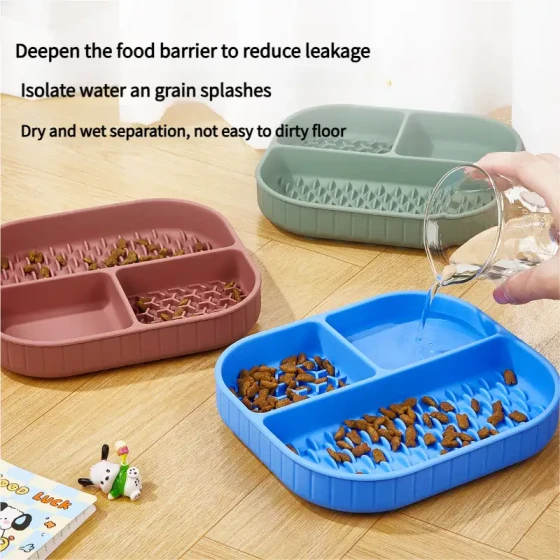Newborn Kitten's Eyes Discharge Pus and Cannot Open_Kitten Eye Infection Symptoms and Care Methods
Newborn kittens with pus discharge in their eyes and inability to open them usually represent common signs of eye infection in kittens, possibly caused by conjunctivitis or other reasons. If you find such symptoms in your kitten, timely action is needed. The most important thing is to consult a veterinarian as soon as possible to get professional diagnosis and treatment advice, because improper handling of eye infections in kittens can affect their vision or even cause blindness.
Newborn kittens usually begin to open their eyes slowly about 10 to 14 days after birth. If during this critical period, you find the kitten's eyelids stuck together, or yellow, green, or even grayish purulent discharge oozing from the eye fissure, with redness and swelling around the eyes that may feel a bit warm to the touch, and the kitten appears restless or lethargic, this likely means the eyes are infected. The infection may be bacterial or viral, and sometimes related to an unclean environment or pathogens carried by the mother cat.
Why are kittens prone to eye infections?
Kittens’ immune systems are not fully developed, making their bodies fragile and less resistant to external pathogens. Besides, their eye structures gradually develop after birth. The closed eyelids provide a relatively sealed, warm, and moist environment favoring bacterial or viral growth. Feline herpesvirus is a common cause of eye infection in kittens, often causing respiratory disease accompanied by eye symptoms. Mycoplasma and chlamydia bacterial infections are also common.
Common symptoms of eye infection in kittens
In addition to pus discharge and inability to open eyes, you may observe the following symptoms:
- Increased eye discharge: The secretion may start as clear tears, quickly turning into thick, purulent discharge varying from pale yellow to green. Sometimes it dries and hardens, sticking the eyelids together.
- Red and swollen eyelids: The skin around the eyes and eyelids appear red and swollen.
- Photophobia: The kitten may dislike strong light and try to avoid it.
- Frequent scratching or rubbing of eyes: The kitten may use its paws or rub its eyes on objects to relieve discomfort.
- Depression and loss of appetite: Severe infections can affect the kitten’s overall condition.
What to do if you find abnormalities in your kitten’s eyes?
Once you notice symptoms such as pus discharge or inability to open the eyes, remember not to use medications by yourself, and never use human eye drops. Cats’ physiological structures differ from humans; some medicines can harm them. The correct approach is:
- Contact a veterinarian immediately: This is the most critical first step. The veterinarian will conduct professional examinations to determine whether the infection is bacterial, viral, or caused by other issues, and prescribe appropriate medications such as antibiotic eye drops or eye ointments. In many cases, particularly with viral infections, systemic treatment may also be needed.
- Perform cleaning care under veterinary guidance: While waiting for consultation or following veterinarian instructions, you can carefully clean the kitten’s eye discharge.
- Prepare tools: Warm water (temperature close to body temperature, tested on the back of a clean hand to be neither hot nor cold), clean gauze or sterile cotton balls.
- Procedure: Dip the gauze or cotton ball into warm water, gently apply it to the kitten’s closed eyelids for several tens of seconds to soften dried discharge. Then, use a moistened gauze or cotton ball to gently wipe around the eye from the inner to the outer corner, removing discharge. Use a clean part or replace with a new gauze/cotton ball each time to avoid cross-infection.
- Precautions: All actions must be gentle; do not forcibly pry open the eyelids to avoid injuring the kitten. If the discharge is difficult to remove, do not force it; try softening again during the next cleaning.
Other key points of home care
- Maintain a clean environment: The kitten’s living area should be clean and dry; regularly clean the litter box, and avoid dust and irritants.
- Isolation: If there are other cats at home, it is best to isolate the sick kitten to prevent infection spread.
- Use medication on time: Strictly follow the vet’s instructions, administering eye medication or other drugs on time and in proper doses; do not stop or change dosage arbitrarily even if symptoms improve.
- Provide adequate nutrition: Ensure the kitten can eat easily digestible and nutritious food to boost body resistance.
- Observe and record: Closely monitor the kitten’s eye condition, mental state, appetite, etc., and promptly inform the veterinarian of any changes.
How to prevent eye infections in kittens?
Prevention is always better than cure. The following measures can reduce the risk of eye infections in kittens:
- Maintain environmental hygiene: Regularly clean and disinfect the cat’s living area.
- Pay attention to mother cat’s health: If breeding your own kittens, ensure the mother cat’s health with regular checkups and vaccinations.
- Avoid contact with infection sources: Try to prevent kittens from contacting unknown or eye-diseased cats.
- Vaccinate at appropriate age: Follow the veterinarian’s schedule to vaccinate kittens with core vaccines, including those targeting feline herpesvirus and other common pathogens.
Frequently Asked Questions
- Q: My kitten’s eyes are slightly watery. Do I need to go to the hospital?
- A: Watery eyes in kittens can be caused by many reasons, slight irritation may also cause it. But if accompanied by abnormal discharge color (yellow, green), eyelid redness or the kitten seems lethargic, consult a vet promptly to rule out infection.
- Q: Can I use saline solution to wash my kitten’s eyes?
- A: Without vet guidance, it’s best to only use warm water to clean eye discharge. Although saline is relatively mild, it cannot treat infections and improper use may wash away the eye’s natural protective layer.
- Q: Can a kitten’s eye infection heal on its own?
- A: Eye infections in kittens rarely self-heal and usually require professional medical intervention. Delaying treatment may lead to more severe consequences.
Summary
Pus discharge and inability to open eyes in newborn kittens are symptoms that require high attention, indicating potential eye infection. Seeking professional veterinary help promptly for accurate diagnosis and standardized treatment, combined with home care under veterinary guidance, is key to protecting the kitten’s vision health. Remember, patient, meticulous care plus professional medical treatment can help these little lives regain bright and clear eyes.
References:
According to a veterinary study, feline conjunctivitis is often caused by multiple pathogens including feline herpesvirus, mycoplasma, and chlamydia.
According to authoritative veterinary association vaccine guidelines, the vaccine against feline herpesvirus is part of core vaccines for kittens.
Veterinarians usually prescribe animal-specific antibiotic or antiviral eye medications based on diagnosis.
When caring for kittens’ eyes, veterinarians typically recommend gentle cleaning of eye discharge with warm water and clean gauze or cotton balls.
